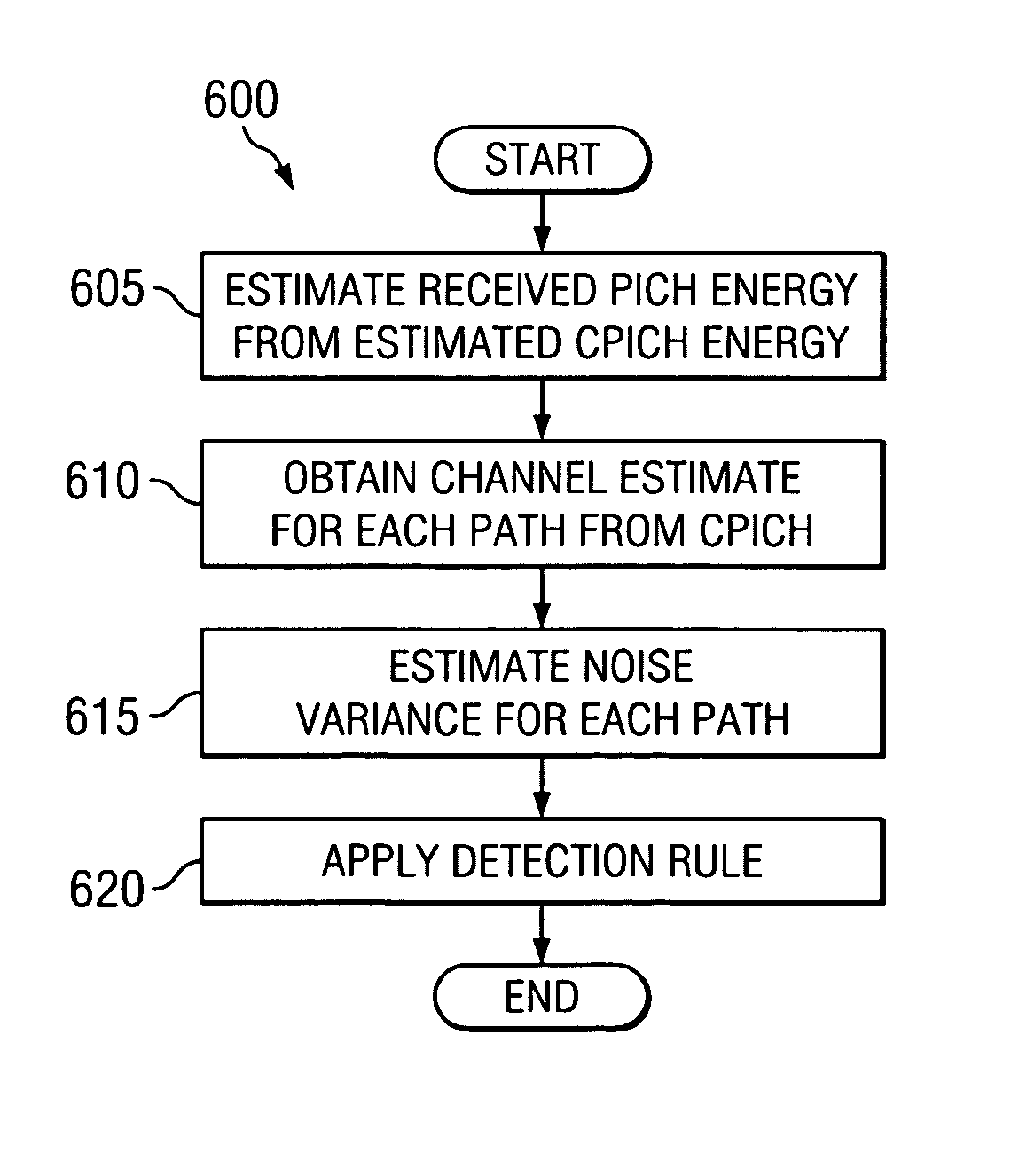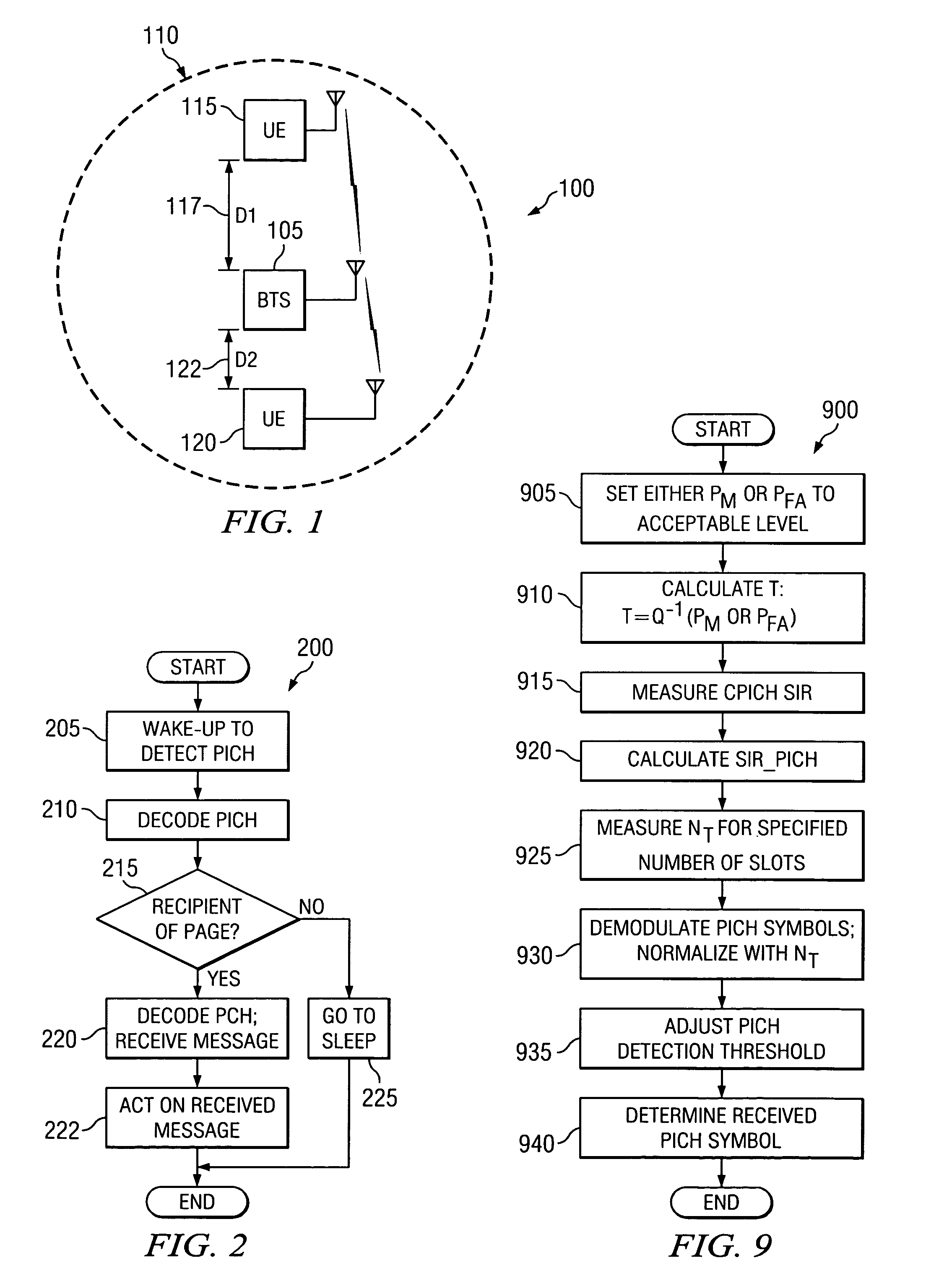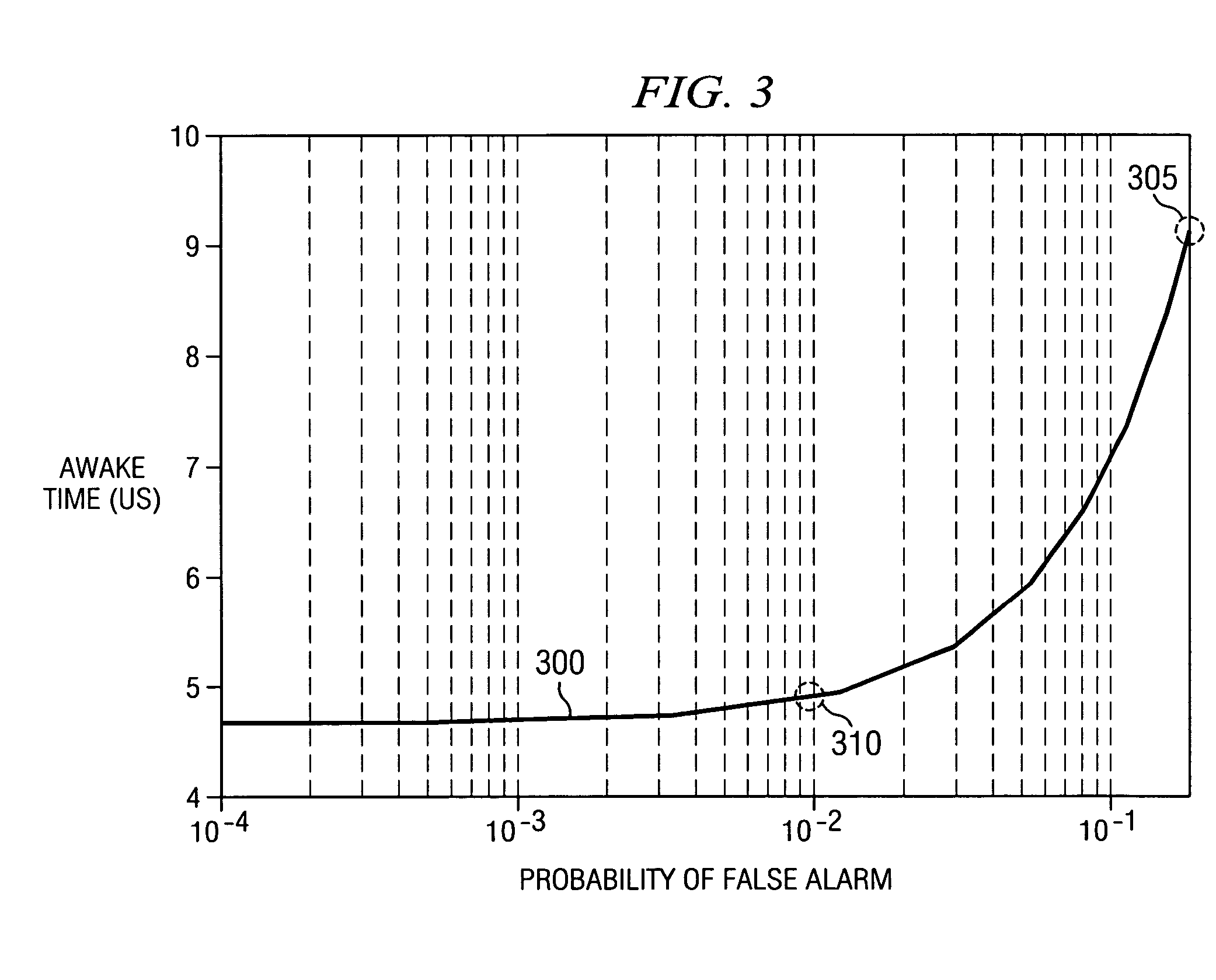Automatic threshold selection method for improving the detection of a wireless signal
a wireless signal and automatic threshold selection technology, applied in the field of digital communications, can solve the problems of increasing power consumption, reducing battery life, and high probability of communication devices erroneously decoding indicator channels, and achieve the effect of improving the detection performance of wireless transmitted signals
- Summary
- Abstract
- Description
- Claims
- Application Information
AI Technical Summary
Benefits of technology
Problems solved by technology
Method used
Image
Examples
Embodiment Construction
[0027] The making and using of the presently preferred embodiments are discussed in detail below. It should be appreciated, however, that the present invention provides many applicable inventive concepts that can be embodied in a wide variety of specific contexts. The specific embodiments discussed are merely illustrative of specific ways to make and use the invention, and do not limit the scope of the invention.
[0028] The present invention will be described with respect to preferred embodiments in a specific context, namely a UMTS wireless communications system using a paging indicator channel. An introduction to the technical specifications for a UMTS wireless communications system may be found in a document entitled “3rd Generation Partnership Project; Technical Specifications Group Services and System Aspects General UMTS Architecture (Release 4),” published March 2004. The invention may also be applied, however, to other wireless communications systems that make use of an indi...
PUM
 Login to View More
Login to View More Abstract
Description
Claims
Application Information
 Login to View More
Login to View More - R&D
- Intellectual Property
- Life Sciences
- Materials
- Tech Scout
- Unparalleled Data Quality
- Higher Quality Content
- 60% Fewer Hallucinations
Browse by: Latest US Patents, China's latest patents, Technical Efficacy Thesaurus, Application Domain, Technology Topic, Popular Technical Reports.
© 2025 PatSnap. All rights reserved.Legal|Privacy policy|Modern Slavery Act Transparency Statement|Sitemap|About US| Contact US: help@patsnap.com



